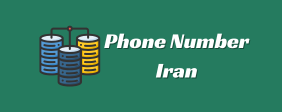Missed appointments are a common issue across many industries. from healthcare and beauty services to financial consultations and automotive repairs. These no-shows result in lost revenue. wasted resources. and inefficiencies that can disrupt daily operations. One effective solution to this problem is leveraging mobile reminders. which provide a direct. convenient way to remind clients about their upcoming appointments. With mobile usage ubiquitous. SMS and automated calls have become essential tools to improve attendance rates.
Why Mobile Reminders Work
Mobile reminders stand out due to their immediacy and high open rates. Unlike emails that can get lost in crowded inboxes. SMS messages and phone calls are more likely to be seen and acted upon quickly. Mobile reminders help reduce forgetfulness by nudging clients closer to their scheduled time. providing details such as date. time. location. and any preparation instructions. When reminders are timely and well-crafted. they can significantly decrease last-minute cancellations and no-shows.
Automating Appointment Reminders for Efficiency
Automation plays a critical role in scaling mobile reminder efforts. Integrating appointment scheduling systems with SMS gateways or voice calling platforms allows businesses to send automated reminders without manual cambodia phone number list intervention. These systems can trigger reminders at optimal times—such as 24 hours and 1 hour before the appointment—maximizing effectiveness. Some platforms also enable two-way communication. allowing clients to confirm. reschedule. or cancel via reply. which further streamlines appointment management and improves operational flow.
Best Practices for Mobile Appointment Reminders
To maximize impact. appointment reminders should be clear. concise. and personalized. Including the client’s name. appointment details. and contact information for easy rescheduling enhances the user experience. Avoid sending strengthening your brand through social media reminders too far in advance or too close to the appointment time—typically 24 to 48 hours prior works best. Ensure compliance with communication regulations like TCPA and GDPR by securing consent for sending reminders. Finally. monitoring response and attendance rates helps optimize timing and messaging strategies over time.
A well-timed reminder leading up to the registration deadline can convert interested individuals who have yet to complete the process. You can also use SMS to share updates regarding the event agenda, speaker details, or technical by [Date] to facebook users secure your spot! [Link]”. Or: “Exciting news! [Speaker Name] will be joining us at [Virtual Event]. Register now: [Link]”. These reminders and updates help maintain engagement and ensure registered attendees are well-informed, leading to a smoother and more successful virtual event experience. Track the performance of your SMS campaigns to identify what works best, and adjust your strategy accordingly to optimize future efforts.






